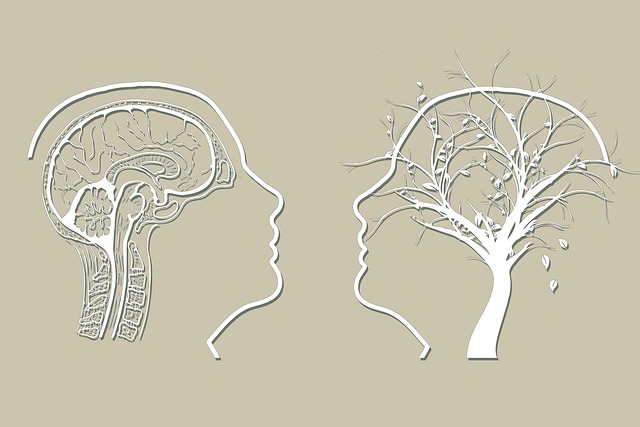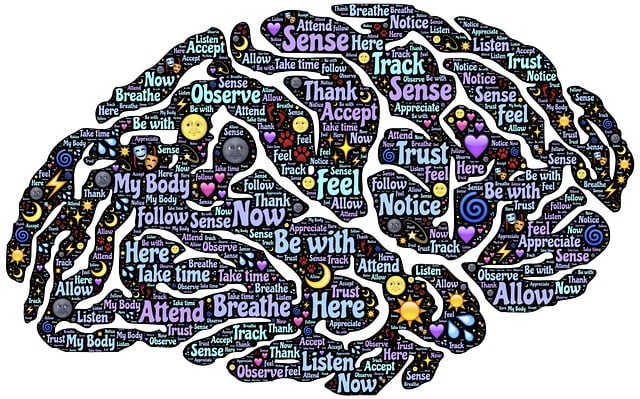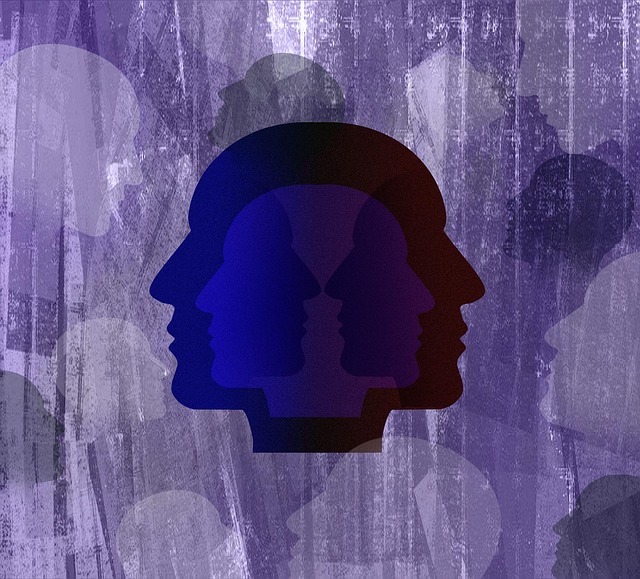Arvada Neuro Disorders Therapy is a leader in culturally sensitive mental healthcare, recognizing that diverse backgrounds significantly impact patient experiences and outcomes, especially for neuro disorders. They tailor treatments, communication, and therapy models to respect individual cultural contexts, incorporating beliefs about mental illness, family dynamics, and coping mechanisms. This approach builds stronger therapeutic alliances, enhances trust, and encourages engagement in healing journeys. By understanding and respecting client diversity, Arvada Neuro provides personalized care, improving outcomes and promoting mental wellness through continuous learning, adaptation, and initiatives like Social Skills Training and the Mental Wellness Podcast Series. Their commitment to cultural sensitivity extends to staff well-being, reducing stigma, and fostering an inclusive environment.
Mental healthcare, a vital pillar of well-being, must embrace cultural sensitivity to effectively support a diverse population. This article explores the intricate relationship between cultural diversity and mental health treatment, highlighting the importance of understanding unique cultural contexts in therapeutic practices. We delve into the benefits of culturally competent care, navigate challenges, and present strategies for improvement. Additionally, we showcase Arvada Neuro Disorders Therapy as a success story, demonstrating how organizations can foster inclusive environments that resonate with diverse communities.
- Understanding Cultural Diversity in Mental Healthcare
- The Impact of Cultural Sensitivity on Treatment Outcomes
- Challenges in Providing Culturally Competent Care
- Strategies for Enhancing Cultural Sensitivity in Practice
- Case Studies: Successful Cultural Sensitivity in Action at Arvada Neuro Disorders Therapy
Understanding Cultural Diversity in Mental Healthcare

In the diverse landscape of mental healthcare, understanding cultural diversity is paramount. Every patient brings with them a unique background, shaped by their race, ethnicity, religion, and socio-economic status, which significantly influences how they perceive and interact with mental health services. This awareness is crucial for providers like those at Arvada Neuro Disorders Therapy, who must tailor their approach to effectively support individuals from various cultural contexts.
Cultural sensitivity involves recognizing these differences and incorporating them into treatment plans, communication styles, and therapy models. For instance, understanding cultural beliefs about mental illness, family dynamics, and coping mechanisms can prevent miscommunication and build stronger therapeutic alliances. Moreover, integrating burnout prevention strategies for healthcare providers and implementing robust risk management planning for mental health professionals ensures that cultural sensitivity is not just a concept but a practical, everyday reality in mental healthcare practices, contributing to improved patient outcomes and a more inclusive environment, while also addressing depression prevention as a vital aspect of care.
The Impact of Cultural Sensitivity on Treatment Outcomes

Incorporating cultural sensitivity into mental healthcare practice significantly enhances treatment outcomes, especially for diverse populations navigating conditions like neuro disorders in Arvada. When therapists understand and respect a client’s cultural background, they can tailor interventions to align with the individual’s unique beliefs, values, and experiences. This personalized approach fosters trust and encourages open communication, leading to improved engagement in therapy. For instance, certain cultural practices may influence how clients express emotions or perceive mental health issues, and being culturally sensitive allows therapists to interpret these nuances accurately.
Moreover, cultural sensitivity promotes the development of inner strength and boosts confidence among clients. By acknowledging and valuing their cultural identities, therapists validate a person’s experiences and encourage them to explore their emotional resilience. This supportive environment can significantly impact mental wellness, encouraging individuals to engage in beneficial practices like journaling as a therapeutic exercise. Such personalized care not only improves clinical outcomes but also ensures that each client receives respectful, culturally competent guidance on their journey towards healing.
Challenges in Providing Culturally Competent Care

Providing culturally competent care presents unique challenges in mental healthcare. One of the primary hurdles is understanding and respecting diverse cultural beliefs and practices, especially when they differ significantly from mainstream norms. At Arvada Neuro Disorders Therapy, we recognize that every individual comes from a distinct background shaped by their race, ethnicity, religion, gender, and sexual orientation—all factors that influence how they perceive and interact with mental health services.
For instance, some cultures may emphasize collective over individual experiences, which can impact the willingness to seek therapy or share personal struggles openly. Others might have specific rituals or practices for addressing emotional distress. Incorporating these cultural nuances into therapeutic approaches is essential, as it fosters trust and encourages clients to engage more fully in their mental wellness journey. This involves not just knowledge of different cultures but also a genuine desire to learn and adapt practices like Mental Wellness Journaling Exercise Guidance, Emotional Well-being Promotion Techniques, and Compassion Cultivation Practices to meet the unique needs of each client.
Strategies for Enhancing Cultural Sensitivity in Practice

Incorporating cultural sensitivity into mental healthcare practice is a multifaceted process that requires ongoing learning and adaptation. At Arvada Neuro Disorders Therapy, we recognize that understanding a client’s cultural background, values, and beliefs is essential for delivering effective treatment. One key strategy involves Social Skills Training, which equips individuals with the interpersonal skills to navigate diverse environments while respecting cultural norms. This approach not only fosters better communication but also enhances the therapeutic alliance, making treatment more culturally responsive.
Additionally, engaging in continuous education through Mental Wellness Podcast Series Production can expose practitioners to a wide range of cultural perspectives. These resources provide valuable insights into different communities’ unique mental health challenges and successful interventions. By integrating this knowledge into practice, healthcare providers at Arvada Neuro Disorders Therapy strive to offer tailored care that respects and celebrates the diversity of their clients, ultimately improving outcomes and promoting mental wellness.
Case Studies: Successful Cultural Sensitivity in Action at Arvada Neuro Disorders Therapy

At Arvada Neuro Disorders Therapy, cultural sensitivity has been a cornerstone of their approach, leading to remarkable success in patient outcomes and satisfaction. The clinic has embraced diverse cultural practices and beliefs, recognizing that mental health care must be tailored to each individual’s unique background. Through case studies, they’ve demonstrated the power of this strategy.
One such study highlights a patient from a non-Western cultural background who struggled with symptoms of depression. By incorporating culturally relevant self-awareness exercises, therapists helped the patient process intergenerational trauma and challenges related to their cultural identity. This holistic approach not only reduced symptoms but also fostered a sense of belonging and understanding. Additionally, Arvada Neuro Disorders Therapy actively engages in burnout prevention strategies for its staff, ensuring they can provide consistent, compassionate care. Their efforts in mental illness stigma reduction further contribute to creating an inclusive environment, encouraging patients from all walks of life to seek help without hesitation.
Mental healthcare professionals play a pivotal role in fostering inclusive and effective treatment environments. By embracing cultural sensitivity, they can significantly enhance patient outcomes. As evidenced by Arvada Neuro Disorders Therapy’s successful integration of culturally competent practices, understanding and adapting to diverse cultural needs is not just beneficial but essential. Overcoming challenges through strategic training and education ensures that all individuals, regardless of their cultural background, receive compassionate and tailored care, ultimately improving overall mental health services.













